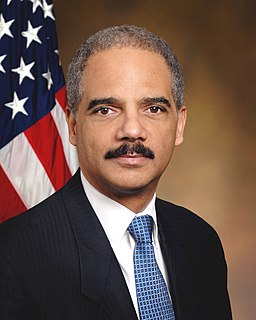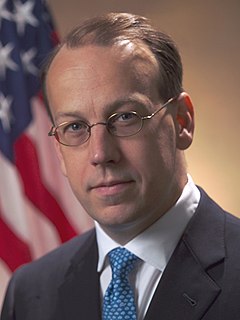GLBTQ Legal Advocates & Defenders (GLAD) is a non-profit legal rights organization in the United States. The organization works to end discrimination based on sexual orientation, HIV status, and gender identity and expression. The organization primarily achieves this goal through litigation, advocacy, and education work in all areas of LGBT rights and the rights of people living with HIV. In addition, GLAD operates a legal information line, GLAD Answers, where LGBTQ & HIV+ residents of New England can receive attorney referrals and information about their rights. The organization changed its name to GLBTQ Legal Advocates & Defenders in February 2016.
Richard John Baker v. Gerald R. Nelson, 291 Minn. 310, 191 N.W.2d 185 (1971), is a case in which the Minnesota Supreme Court ruled that a state law limiting marriage to persons of the opposite sex did not violate the U.S. Constitution. Baker appealed, and on October 10, 1972, the United States Supreme Court dismissed the appeal "for want of a substantial federal question". Because the case came to the U.S. Supreme Court through mandatory appellate review, the dismissal constituted a decision on the merits and established Baker v. Nelson as precedent, though the extent of its precedential effect had been subject to debate. In May 2013, Minnesota legalized same-sex marriage and it took effect on August 1, 2013. Subsequently, on June 26, 2015, the U.S. Supreme Court explicitly overruled Baker in Obergefell v. Hodges, making same-sex marriage legal nationwide.
Same-sex marriage has been legally recognized in the U.S. state of South Carolina since a federal court order took effect on November 20, 2014. Another court ruling on November 18 had ordered the state to recognize same-sex marriages from other jurisdictions.
The U.S. Supreme Court's ruling in Obergefell v. Hodges on June 26, 2015, held that the denial of marriage rights to same-sex couples is unconstitutional, invalidating the ban on same-sex marriage in the U.S. state of Louisiana. The ruling clarified conflicting court rulings on whether Louisianian officials are obligated to license same-sex marriages. Governor Bobby Jindal confirmed on June 28 that Louisiana would comply with the ruling once the Fifth Circuit Court of Appeals reversed its decision in a Louisiana case, which the Fifth Circuit did on July 1. Jindal then said the state would not comply with the ruling until the federal District Court reversed its judgment, which it did on July 2. All parishes now issue marriage licenses in accordance with federal law.
Mary L. Bonauto is an American lawyer and civil rights advocate who has worked to eradicate discrimination based on sexual orientation and gender identity, and has been referred to by US Representative Barney Frank as "our Thurgood Marshall." She began working with the Massachusetts-based Gay & Lesbian Advocates & Defenders, now named GLBTQ Legal Advocates & Defenders (GLAD) organization in 1990. A resident of Portland, Maine, Bonauto was one of the leaders who both worked with the Maine legislature to pass a same-sex marriage law and to defend it at the ballot in a narrow loss during the 2009 election campaign. These efforts were successful when, in the 2012 election, Maine voters approved the measure, making it the first state to allow same-sex marriage licenses via ballot vote. Bonauto is best known for being lead counsel in the case Goodridge v. Department of Public Health which made Massachusetts the first state in which same-sex couples could marry in 2004. She is also responsible for leading the first strategic challenges to section three of the Defense of Marriage Act (DOMA).
United States v. Windsor, 570 U.S. 744 (2013), is a landmark civil rights case in which the United States Supreme Court held that restricting U.S. federal interpretation of "marriage" and "spouse" to apply only to opposite-sex unions, by Section 3 of the Defense of Marriage Act (DOMA), is unconstitutional under the Due Process Clause of the Fifth Amendment. In the majority opinion, Justice Anthony Kennedy wrote: "The federal statute is invalid, for no legitimate purpose overcomes the purpose and effect to disparage and to injure those whom the State, by its marriage laws, sought to protect in personhood and dignity."
Golinski v. Office of Personnel Management, 824 F. Supp. 2d 968, was a lawsuit filed in the United States District Court for the Northern District of California. The plaintiff, Karen Golinski, challenged the constitutionality of section 3 of the Defense of Marriage Act (DOMA), which defined, for the purposes of federal law, marriage as being between one man and one woman, and spouse as a husband or wife of the opposite sex.

Sevcik v. Sandoval is the lead case that successfully challenged Nevada's denial of same-sex marriage as mandated by that state's constitution and statutory law. The plaintiffs' complaint was initially filed in the U.S. District Court for the District of Nevada on April 10, 2012, on behalf of several couples denied marriage licenses. These couples challenged the denial on the basis of the U.S. Constitution's Fourteenth Amendment guarantee of equal protection.

Cardona v. Shinseki was an appeal brought in the United States Court of Appeals for Veterans Claims (CAVC) of a decision by the Board of Veterans' Appeals upholding the denial of service-connected disability benefits for the dependant wife of a female veteran. The United States Department of Veterans Affairs denied the disability benefits based on the definition of "spouse" as "a person of the opposite sex" under federal statute. On March 11, 2014, the CAVC dismissed the case as moot after the Secretary of Veterans Affairs advised the Court that he would neither defend nor enforce the federal statute. Cardona subsequently received full payment of her spousal benefits, retroactive to her date of application.
Same-sex immigration policy in the United States denied couples in same-sex relationships the same rights and privileges afforded different-sex couples based on several court decisions and the Defense of Marriage Act (DOMA) until the U.S. Supreme Court ruled Section 3 of DOMA unconstitutional in United States v. Windsor on June 26, 2013.
Same-sex marriage has been legal in the U.S. state of Oklahoma since October 6, 2014, following the resolution of a lawsuit challenging the state's ban on same-sex marriage. On that day, following the U.S. Supreme Court's refusal to review the case that found the ban unconstitutional, the federal Tenth Circuit Court of Appeals ordered the state to recognize same-sex marriage.

Kitchen v. Herbert, 961 F.Supp.2d 1181, affirmed, 755 F.3d 1193 ; stay granted, 134 S.Ct. 893 (2014); petition for certiorari denied, No. 14-124, 2014 WL 3841263, is the federal case that successfully challenged Utah's constitutional ban on marriage for same-sex couples and similar statutes. Three same-sex couples filed suit in March 2013, naming as defendants Utah Governor Gary R. Herbert, Attorney General John Swallow, and Salt Lake County Clerk Sherrie Swensen in their official capacities.

Latta v. Otter is a case initiated in 2013 in U.S. federal court by plaintiffs seeking to prevent the state of Idaho from enforcing its ban on same-sex marriage. The plaintiffs won in U.S. District Court. The case was appealed to the Ninth Circuit Court of Appeals, which heard this together with two related cases–Jackson v. Abercrombie, and Sevcik v. Sandoval.

Bostic v. Schaefer is a lawsuit filed in federal court in July 2013 that challenged Virginia's refusal to sanction same-sex marriages. The plaintiffs won in U.S. district court in February 2014, and the Fourth Circuit Court of Appeals upheld that ruling in July 2014. On August 20, 2014, the U.S. Supreme Court stayed enforcement of the Fourth Circuit's ruling pending the outcome of further litigation. State officials refused to defend the state's constitutional and statutory bans on same-sex marriage.
In Brenner v. Scott and its companion case, Grimsley v. Scott, a U.S. district court found Florida's constitutional and statutory same-sex marriage bans unconstitutional. On August 21, 2014, the court issued a preliminary injunction that prevents that state from enforcing its bans and then stayed its injunction until stays are lifted in the three same-sex marriage cases then petitioning for a writ of certiorari in the U.S. Supreme Court–Bostic, Bishop, and Kitchen–and for 91 days thereafter. When the district court's preliminary injunction took effect on January 6, 2015, enforcement of Florida's bans on same-sex marriage ended.
Obergefell v. Hodges, 576 U.S. ___ (2015), is a landmark civil rights case in which the Supreme Court of the United States ruled that the fundamental right to marry is guaranteed to same-sex couples by both the Due Process Clause and the Equal Protection Clause of the Fourteenth Amendment to the United States Constitution. The 5–4 ruling requires all fifty states, the District of Columbia, and the Insular Areas to perform and recognize the marriages of same-sex couples on the same terms and conditions as the marriages of opposite-sex couples, with all the accompanying rights and responsibilities.











